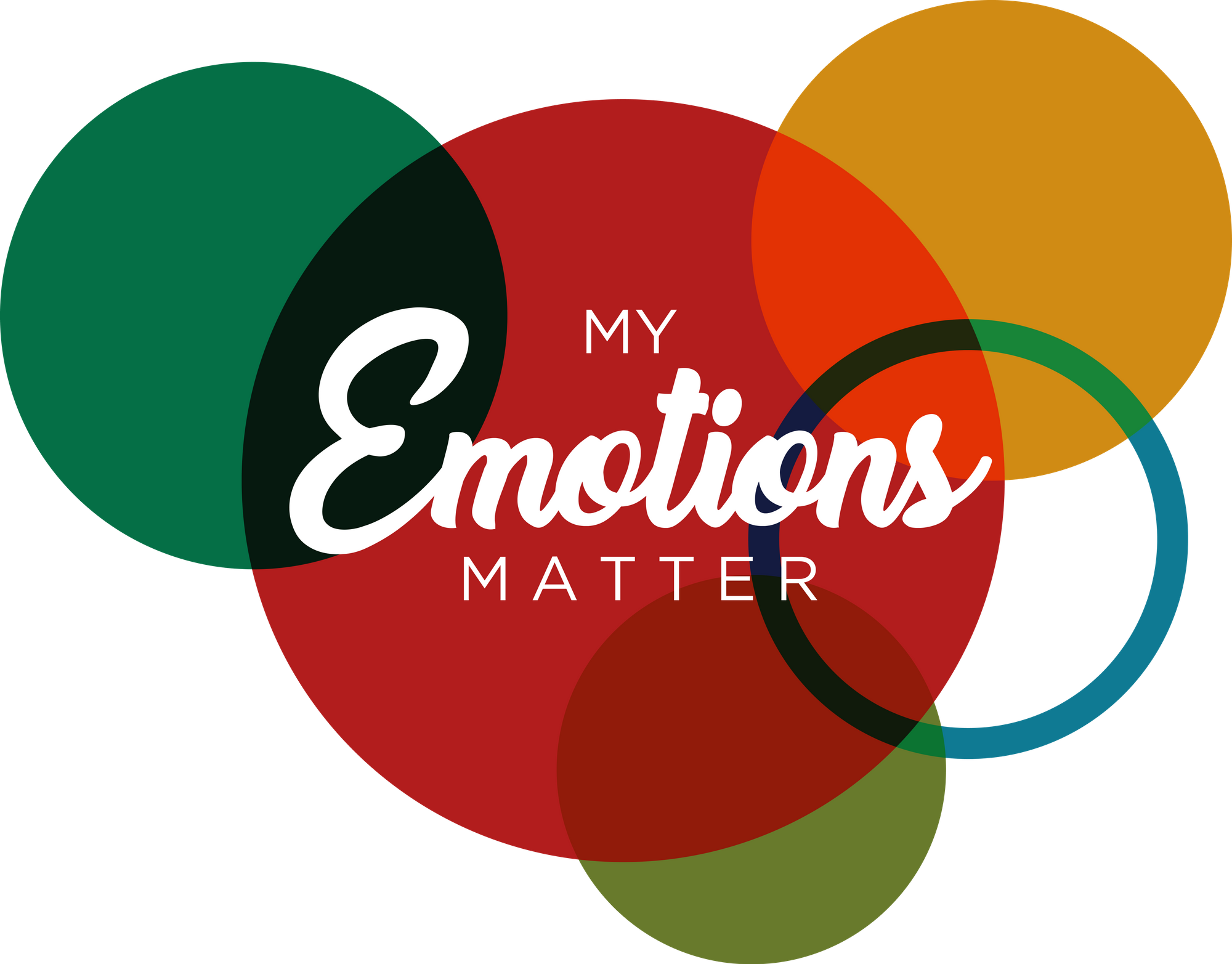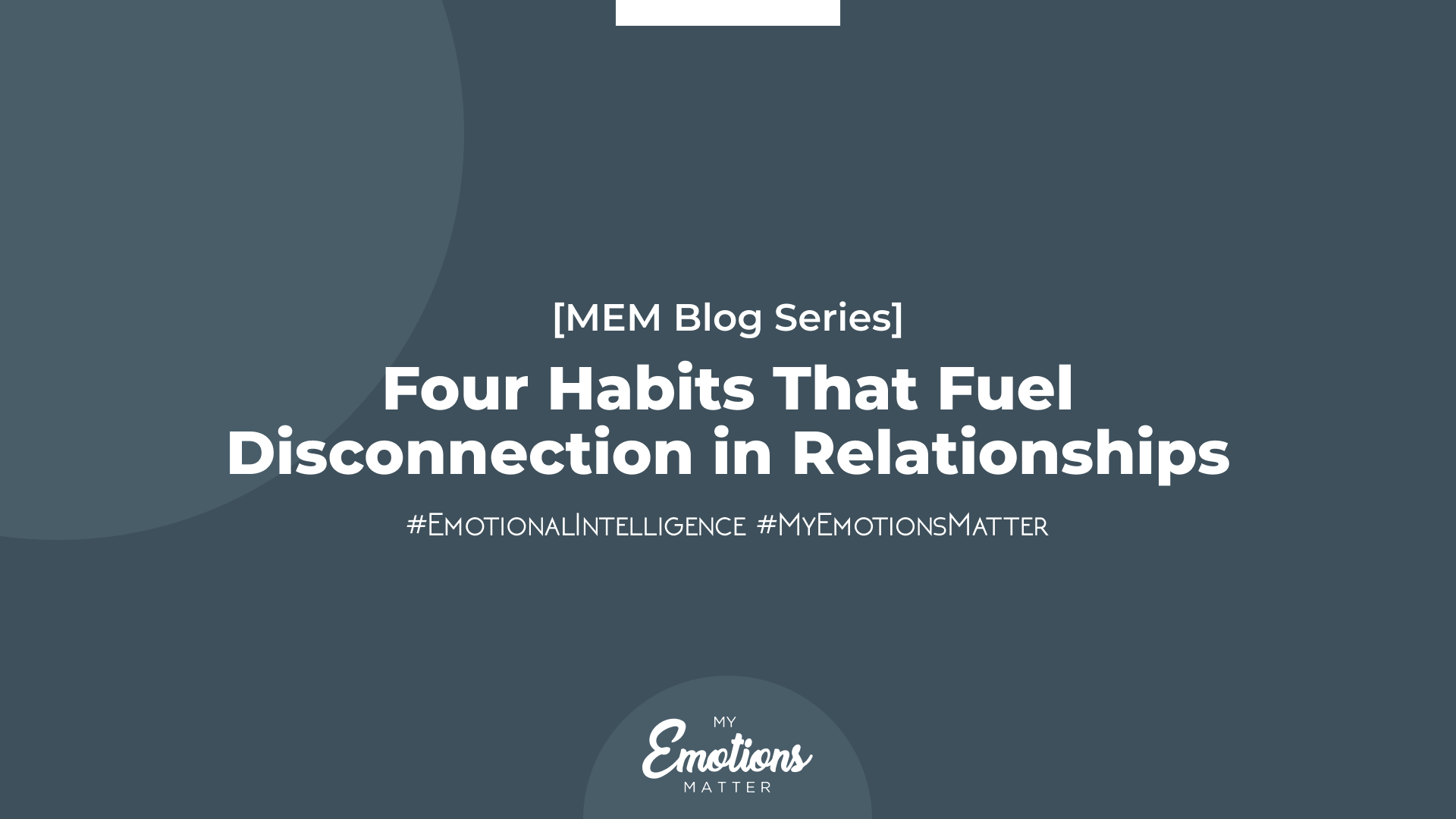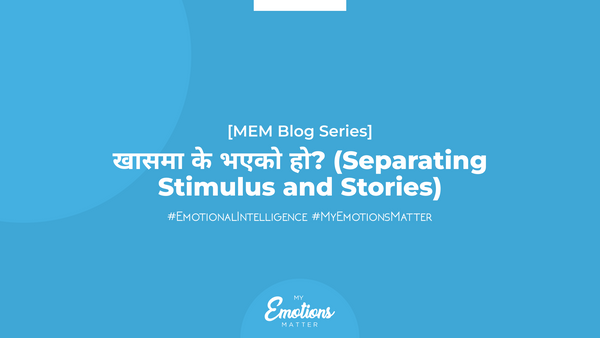Four Habits That Fuel Disconnection in Relationships
There are certain ways we engage with others that are likely to create more distance in the relationship. These automatic ways of reacting can lead us to feel frustration at best and have conflicts at worst. Lucy Leu coined the term ‘4Ds of Disconnection,’ which explains four ways that create distance in interpersonal relationships. Let’s understand each of these disconnecting factors and the impact that they can have on our relationships as well as our own well-being:
Diagnosis: In our day-to-day interactions, it’s easy for us ‘diagnose’ other people – meaning we find it convenient to blame, criticize, and judge. Diagnosis fuels defensiveness and discord in our interpersonal relationships. Who likes to be blamed, judged, or criticized after all? Let’s take my own experience as an example. I have always been an introverted individual, and I prefer more one/one conversations and interaction with a closer group of people instead of going to parties and gatherings. Some of my relatives take this reality with a pinch of salt. I remember this one time I went to a family gathering a few years ago when one of my relatives told me straight to my face, “You’re such a loner!” This comment became my self-fulfilling prophecy for not going to gatherings any more. We’re readily subject to being diagnosed in different kinds of social contexts— whether it may be commenting on someone’s weight (kasto moti bhaeko!) the moment we meet them or judging someone based on two or three interactions we’ve had with them (kasto kichkiche cha). Diagnosis is telling people what they are. When we do this, we get cut off from truly listening and learning what might be going on for them.
Denial of Responsibility: When we deny personal responsibility, we blame others for our choices and actions. We tend to take the ‘anyone but me’ approach. For example, we might say, “It is because you were not listening that I had to raise my voice!” “You make me feel alone.” “I have trust issues because you never tell me what you are up to.” In all of these expressions, if you notice, I, as a speaker, am not acknowledging my choices. I’m instead pointing at others, trying to make them feel guilty, and blaming them for what they did or did not do. Denial of responsibility, therefore, bars us from accepting that we do have personal accountability for our thoughts, feelings and actions.
Deserve: A deserve language fuels disconnection because we try to become the judge of another person. We measure other people’s actions and behavior in terms of whether they deserve reward or punishment. When we operate from this mindset, we are less concerned about connecting and more concerned about who deserves what. This makes us lose connection with another person’s needs, objectives and challenges because we are focused more on what we think is right and what we think is wrong.
Demand: Demand in relationships implies the threat of punishment for others if they don’t comply with what we want. If they disagree, we try to make them submit through fear or guilt. You might have noticed that when we make demands, we might not necessarily threaten others with physical punishment but resort to emotional punishment like laying guilt and making ourselves the victim.
Consider a couple that has been planning to go on a trip after the ease in Covid situation. The partner who came up with the trip idea is very excited. The other is wrapping his head around the work he needs to get done, now that his office resumed after months of hiatus. His concern may be to get things started at work, but if his partner is not aware of the four 4Ds of Disconnection, she might not be ready to hear a ‘no’ from him. When he asks her to reschedule the trip, she might probably try to make him feel guilty. “I thought spending quality time with me meant something to you!” “I was getting excited in vain; you surely have more important things to take care of!” If not through guilt, she might subject him to criticism or judgment to make him comply with what she wants. “You worry about all other things in your life, but I am nowhere in it.” “You’re such a selfish person!”
Diagnosis, denial of responsibility, deserve, and demands are life-alienating forms of communication. They contribute to frustration at best and conflicts at worst. While we can’t escape from other people’s unconscious disconnecting behaviors, we can try not to reciprocate them in our interpersonal relationships.




